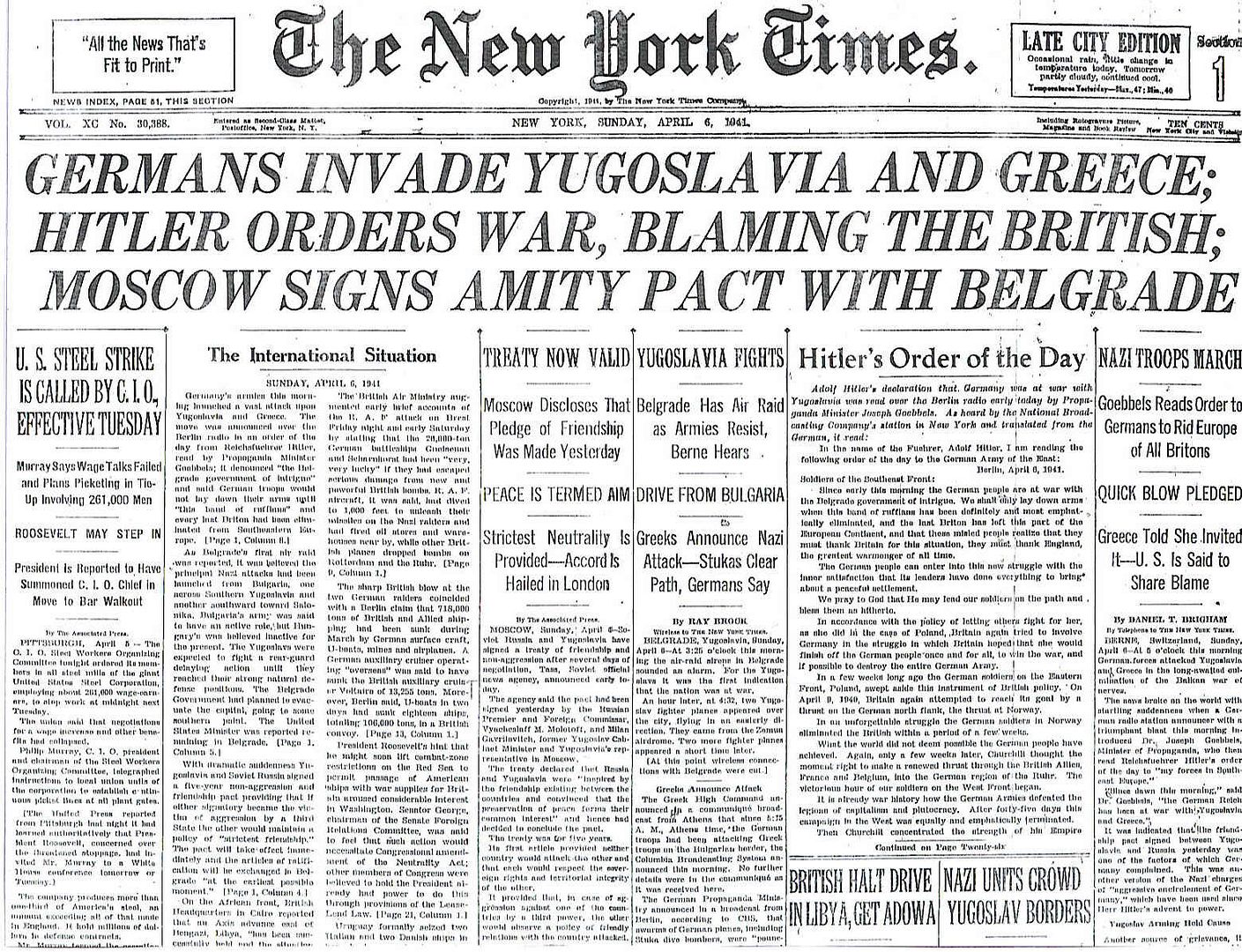
Posted on 04/06/2011 4:23:39 AM PDT by Homer_J_Simpson

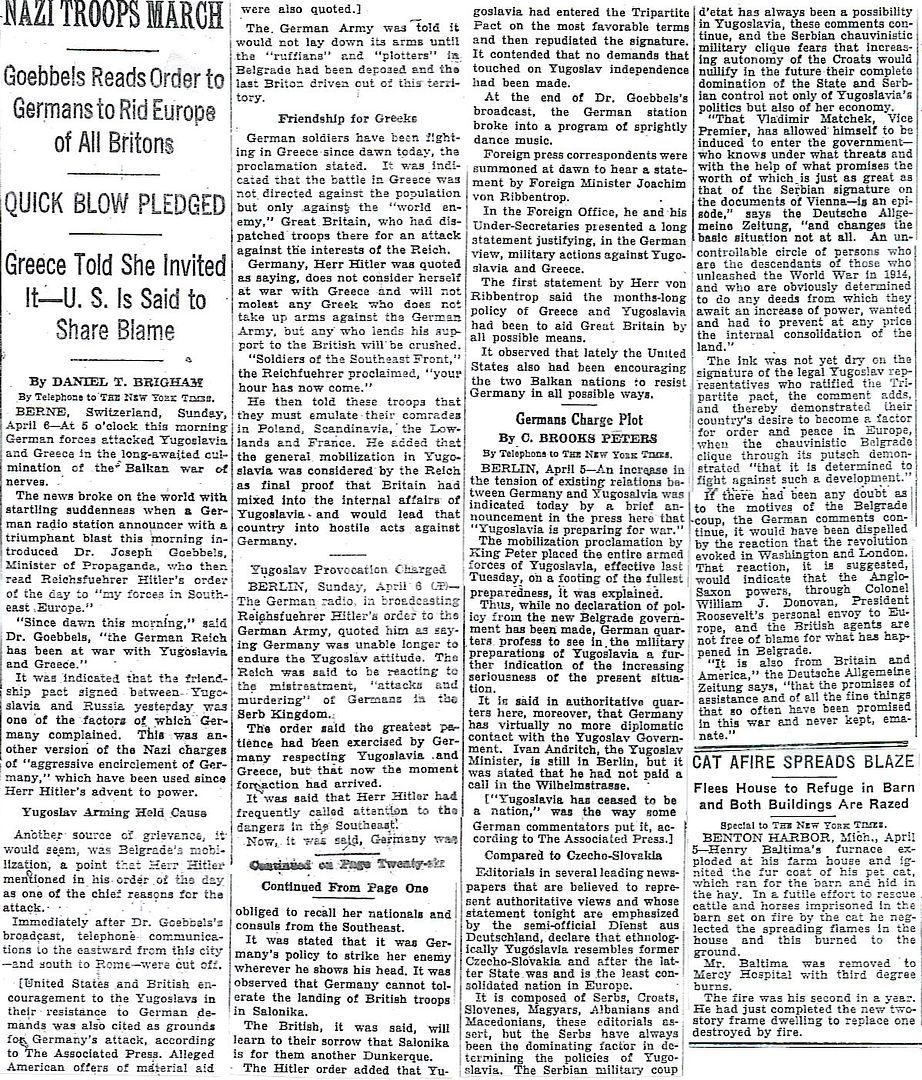
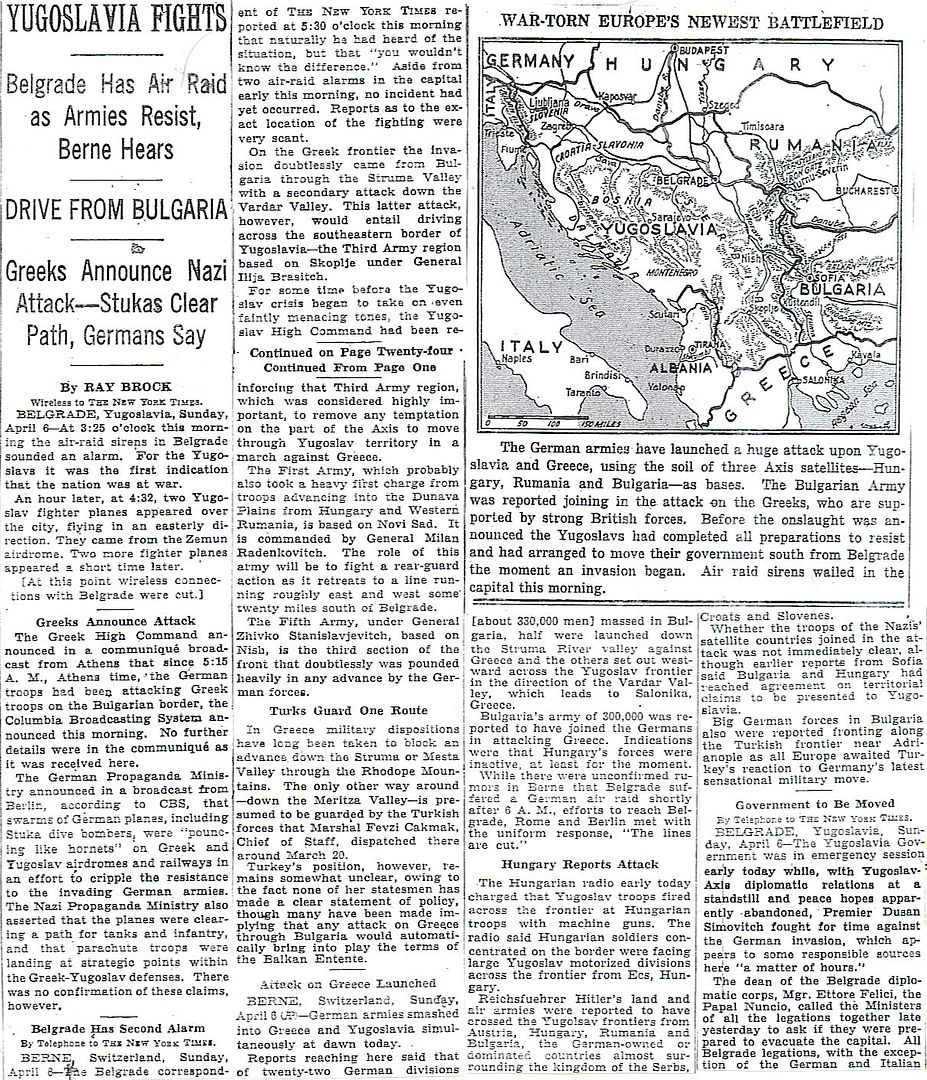
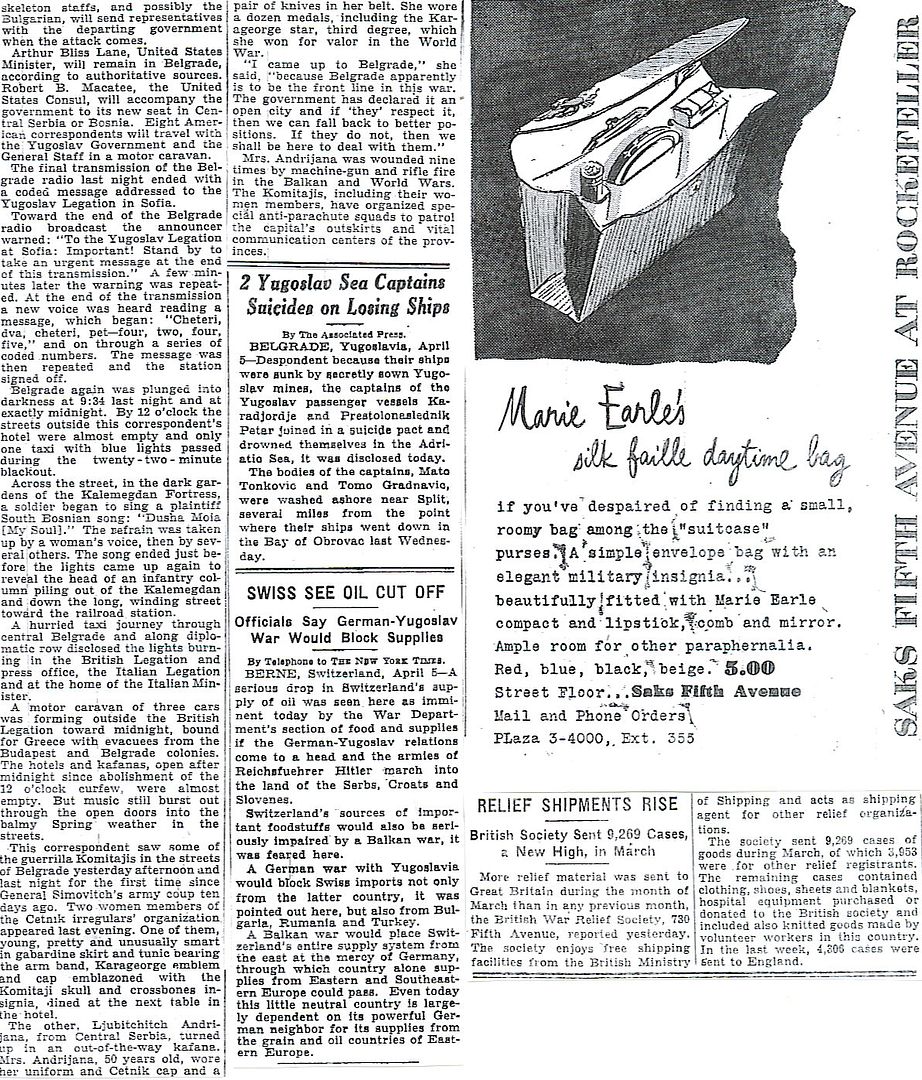
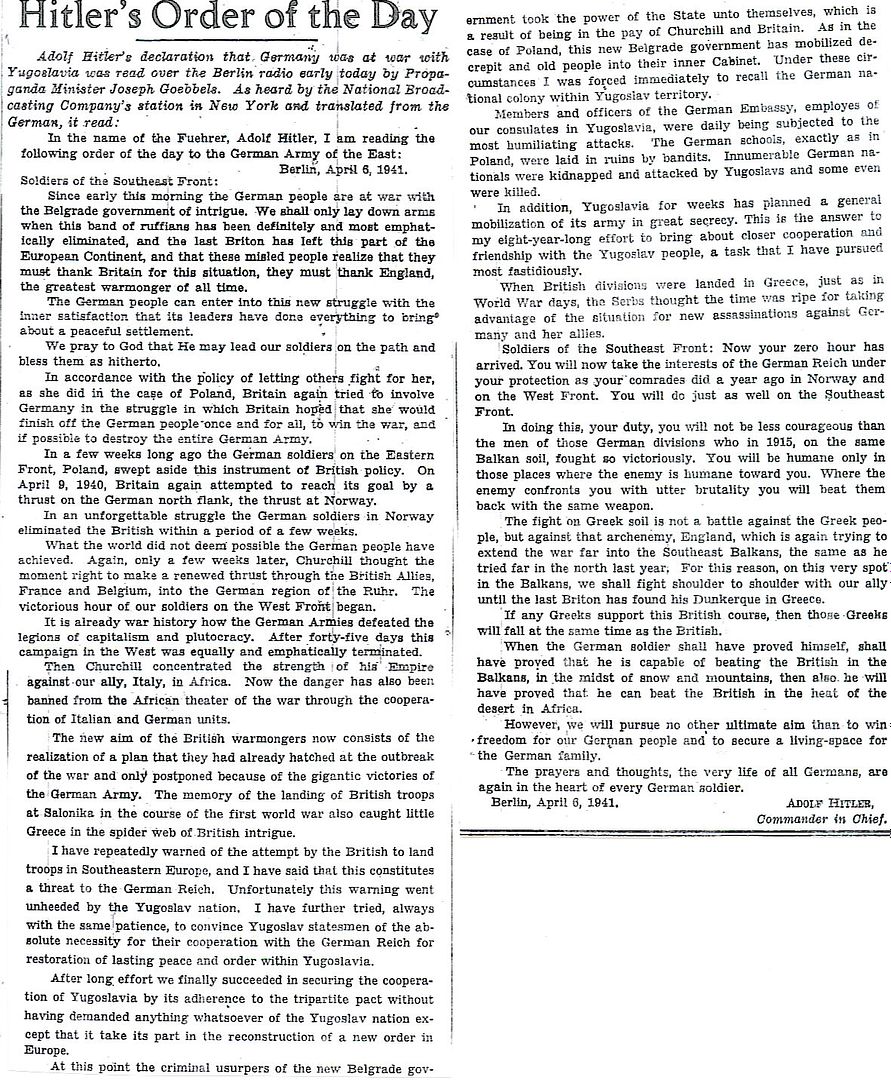
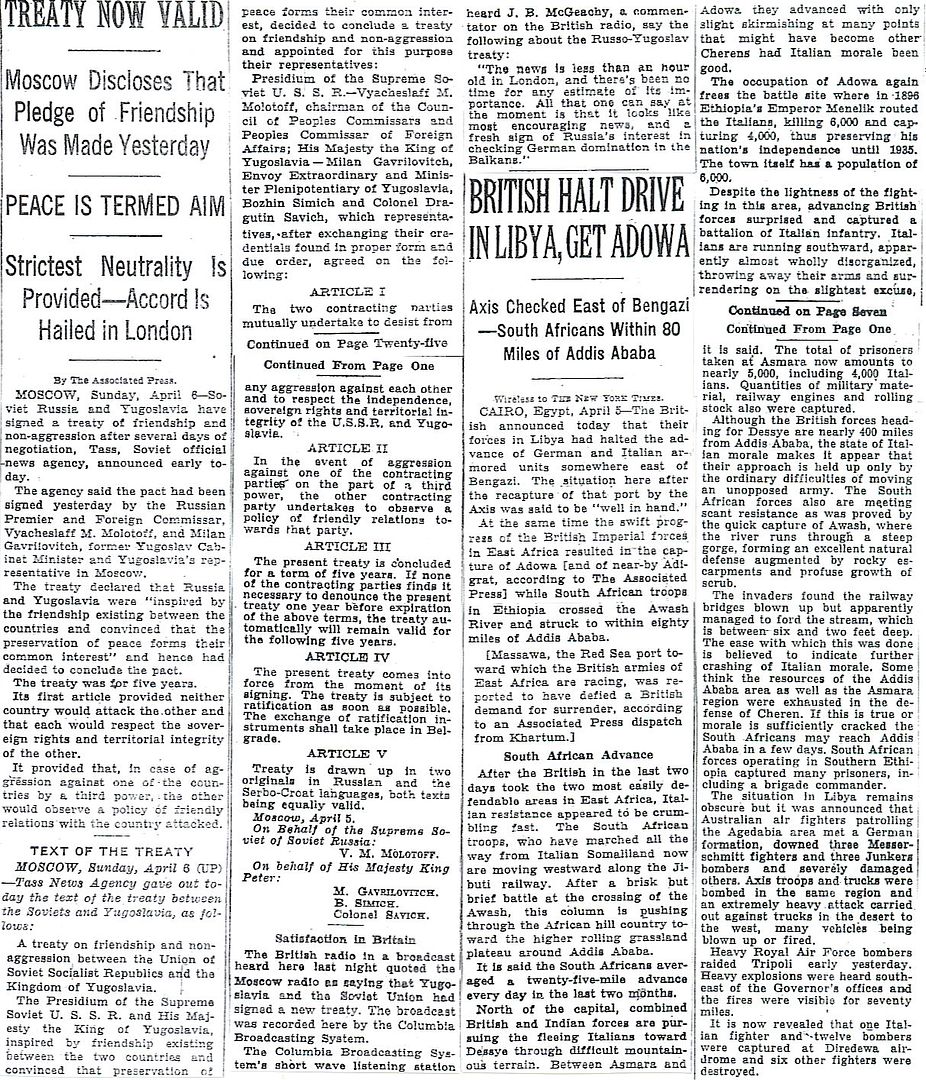
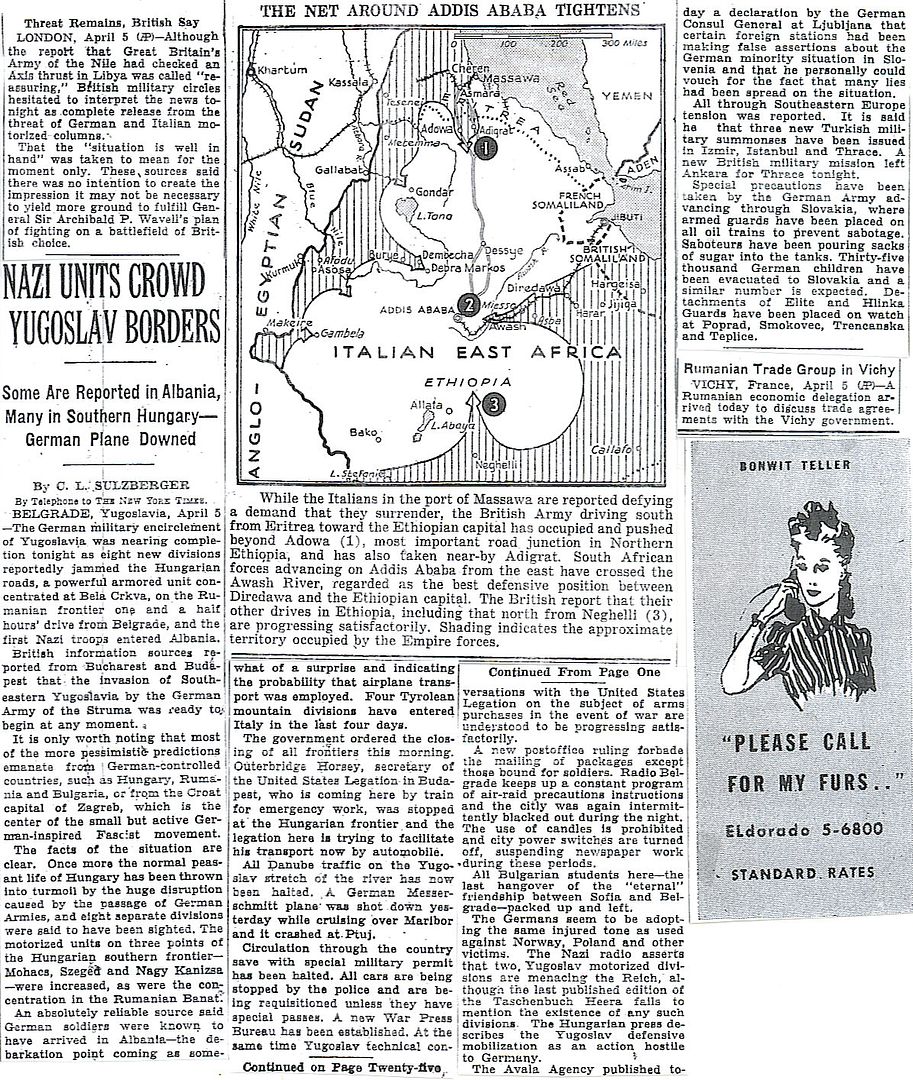
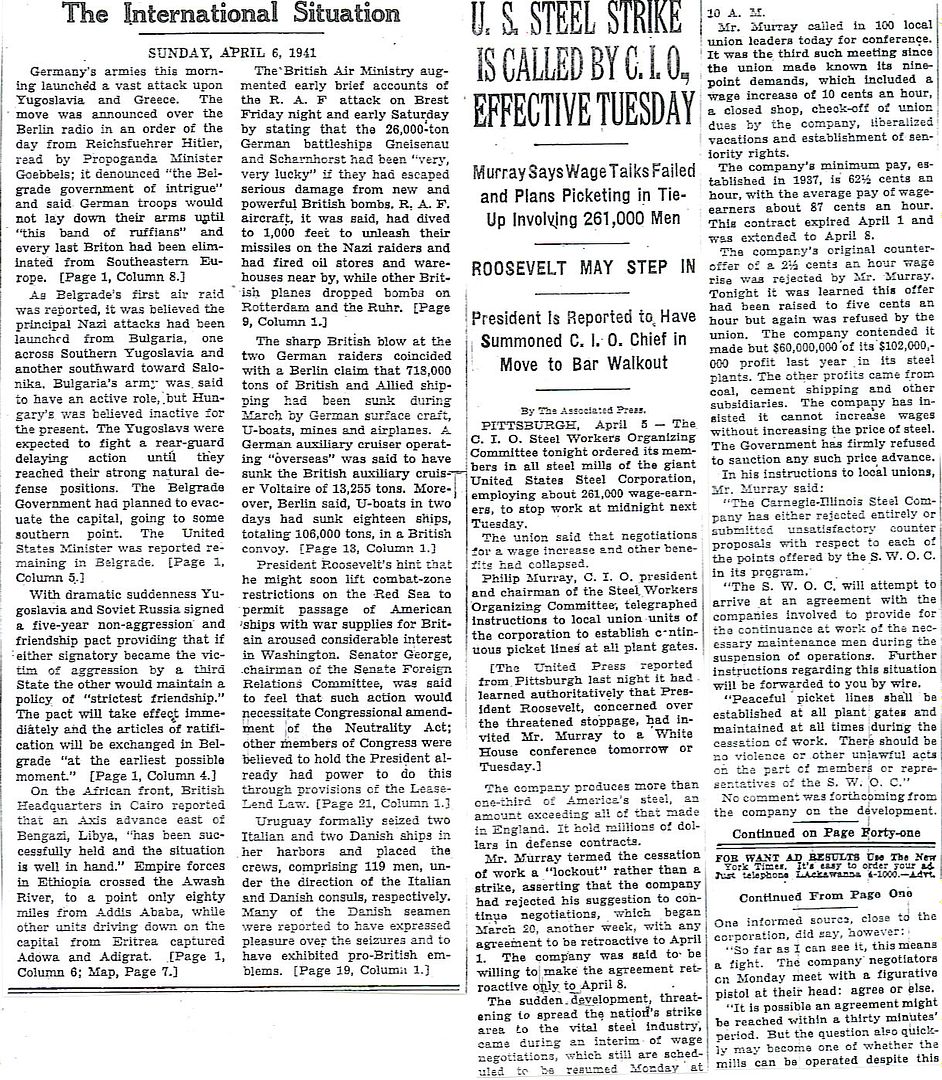
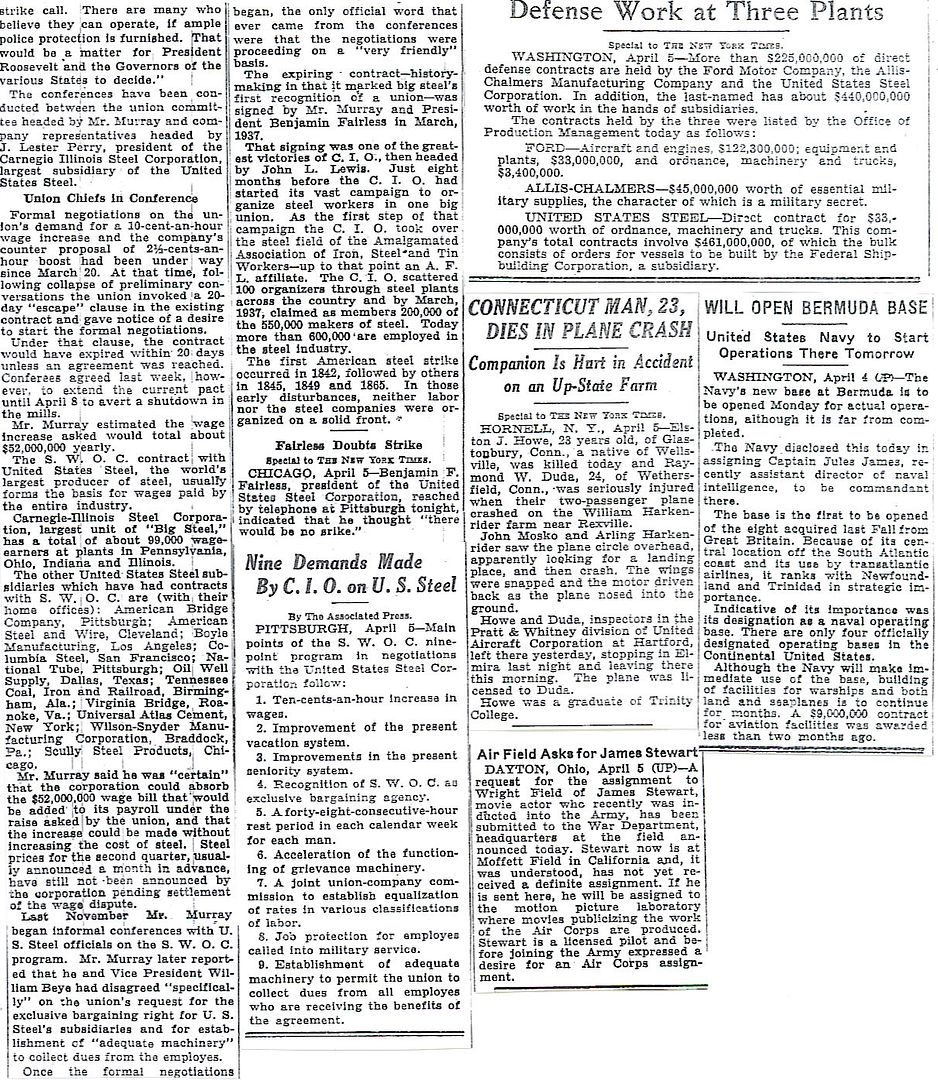
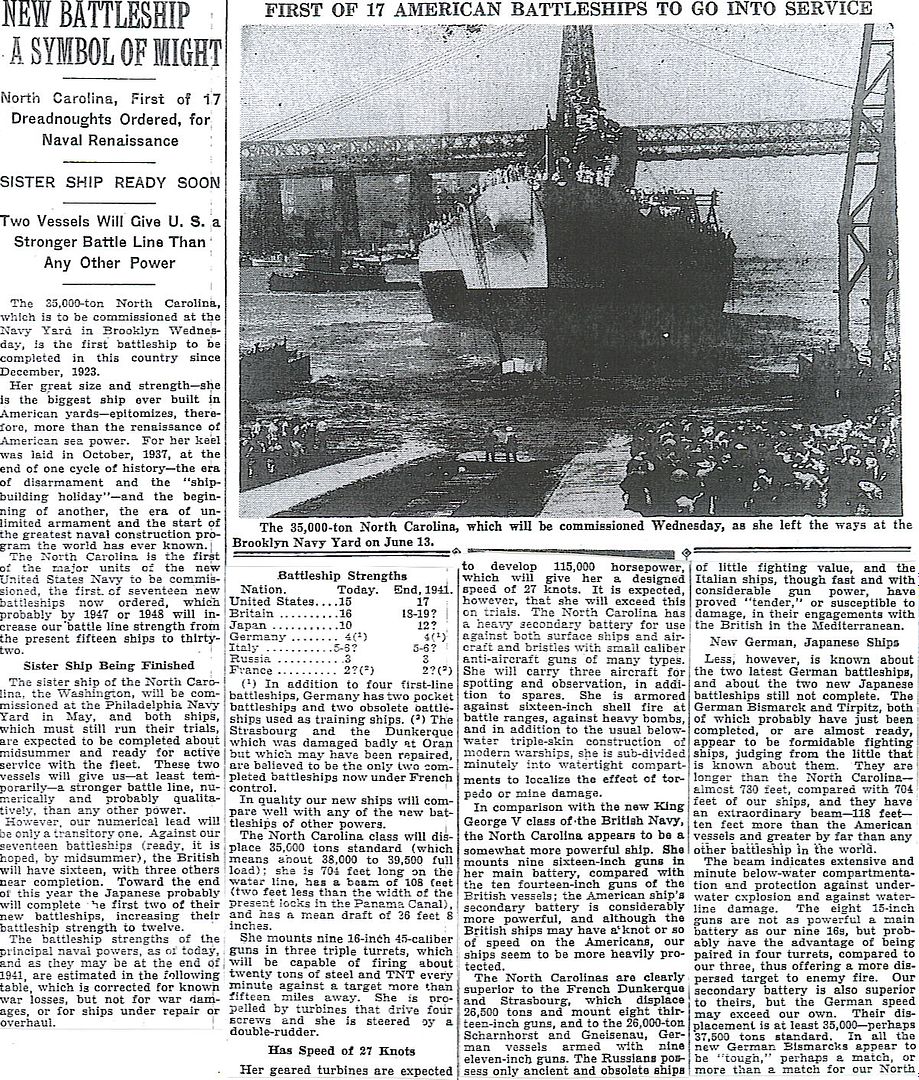
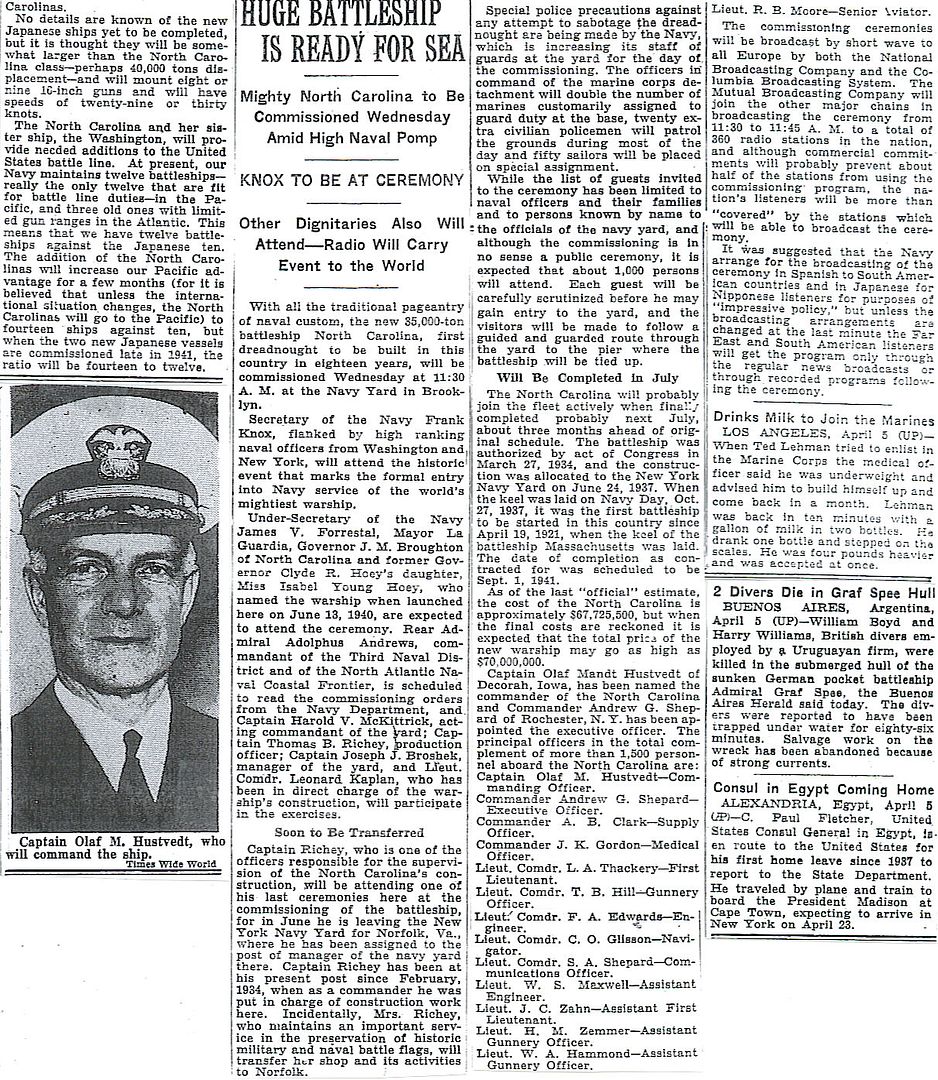
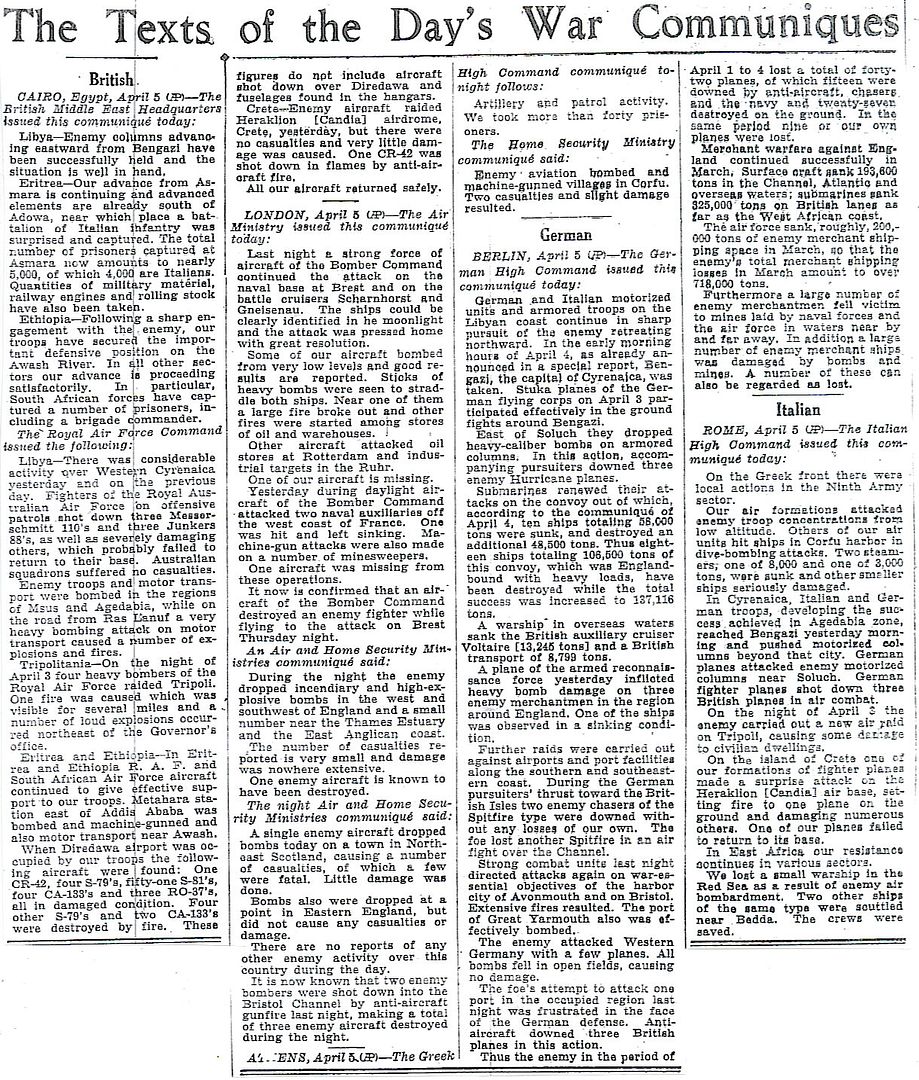
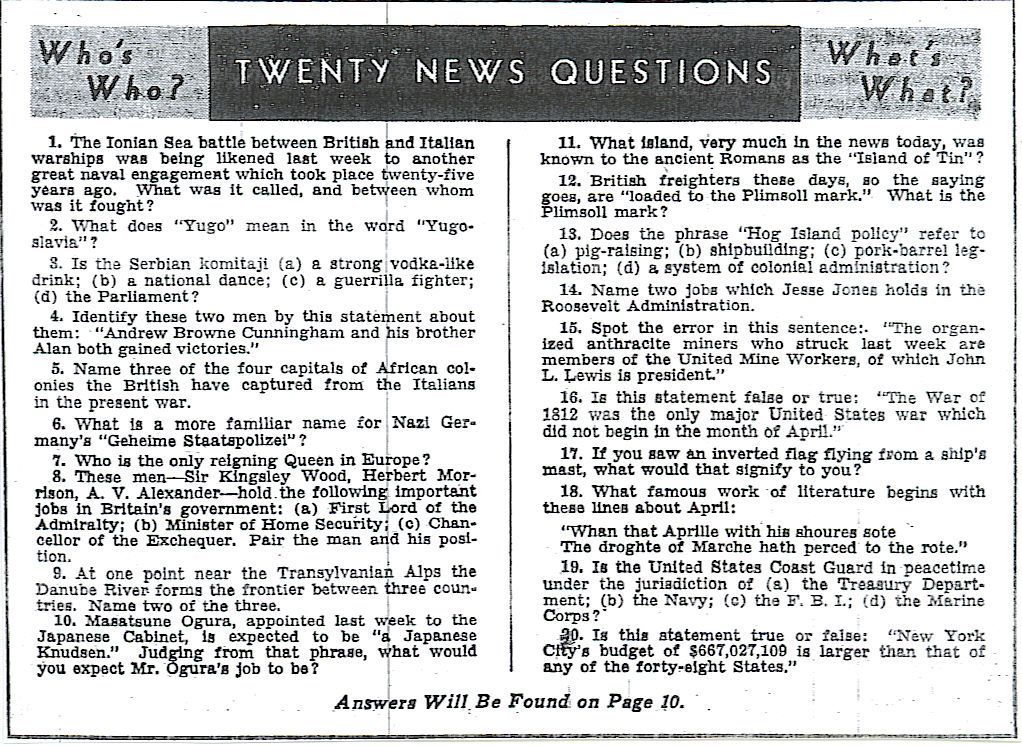
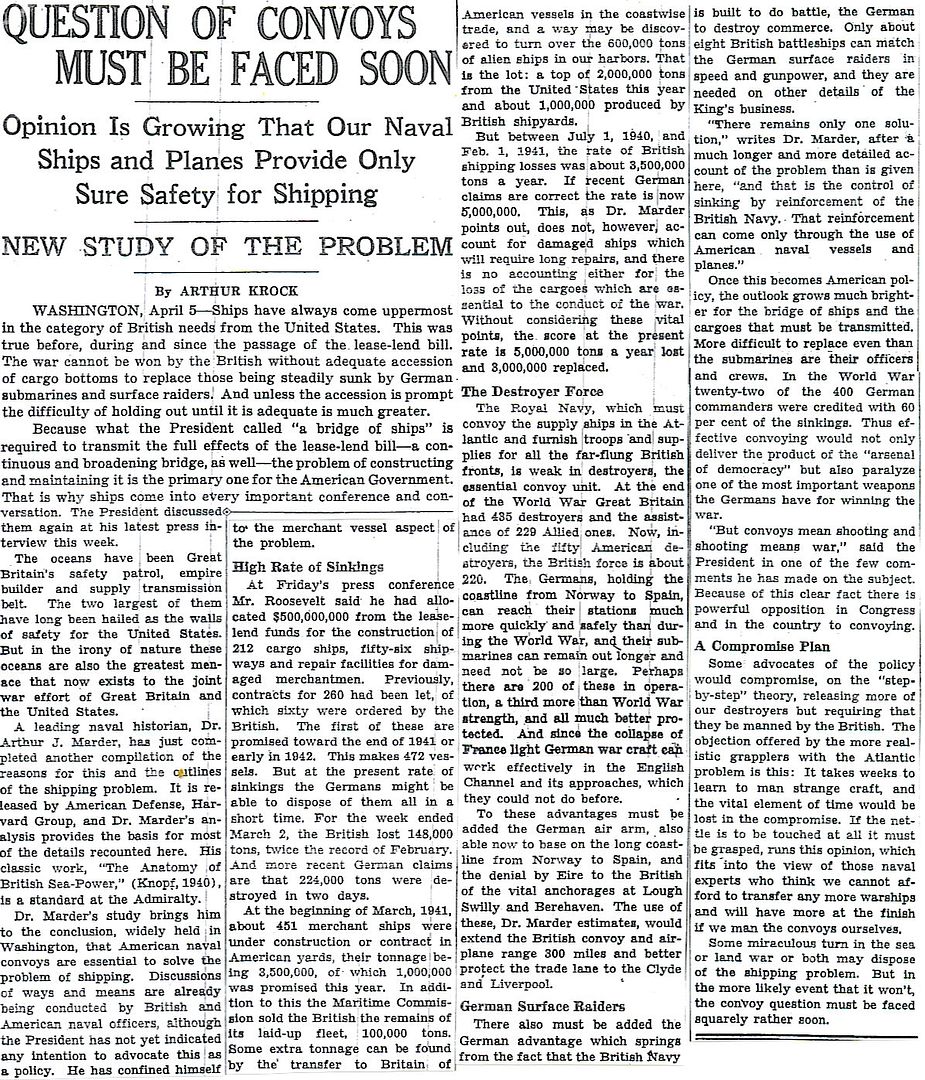
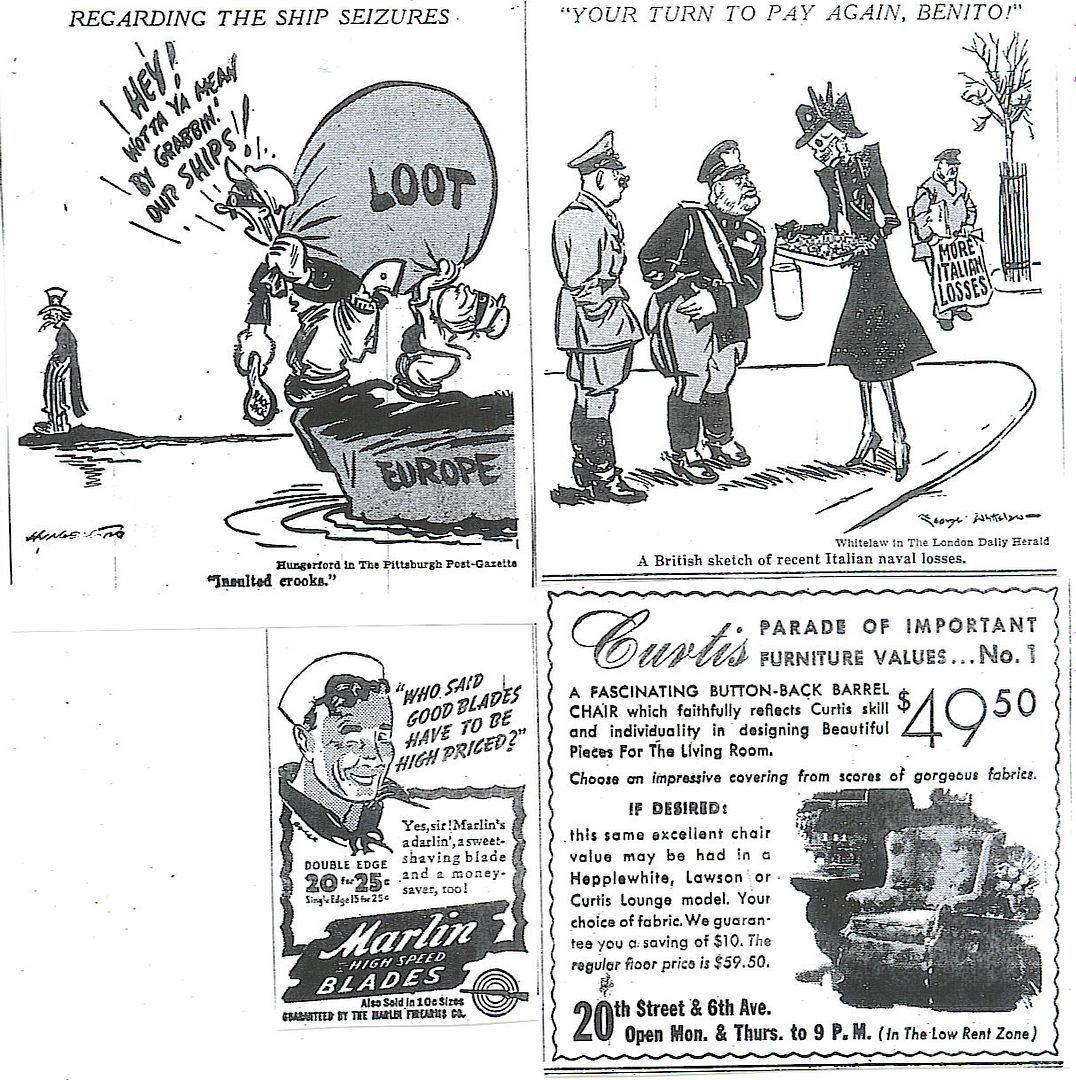
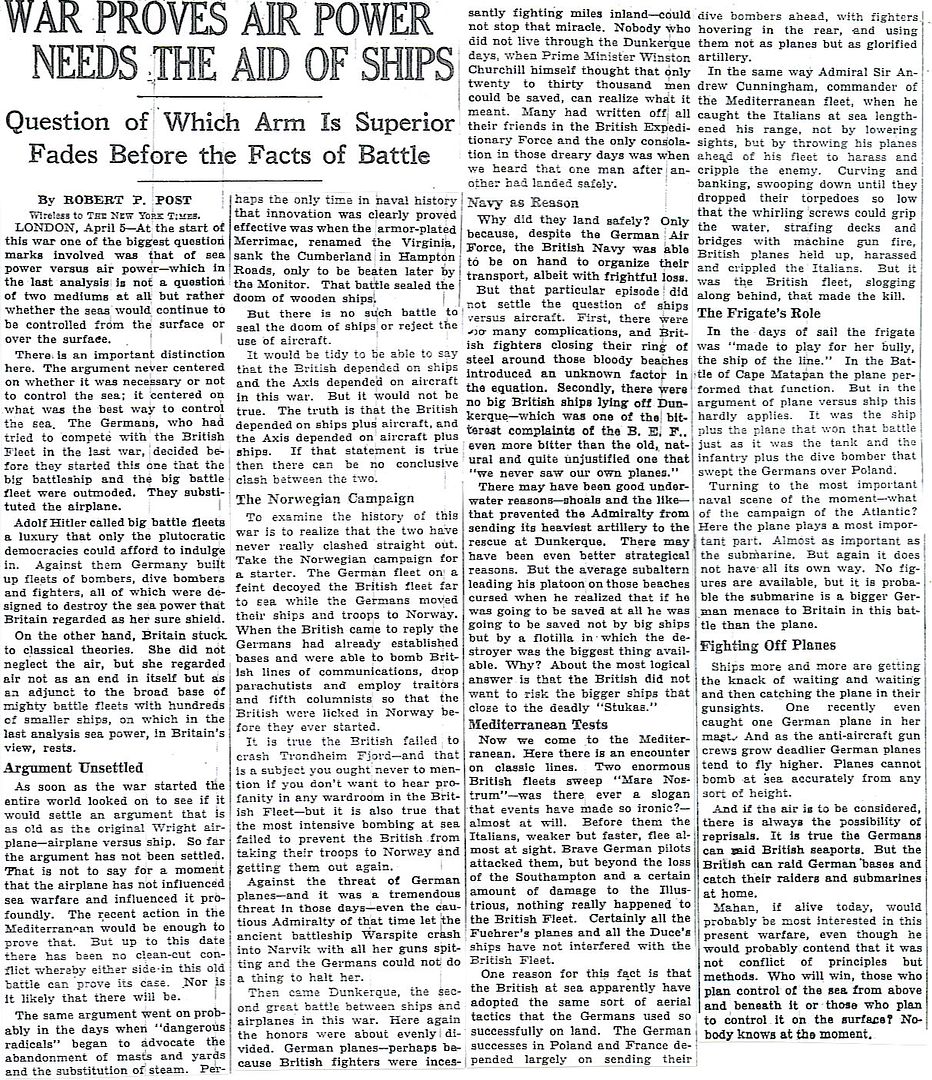
News of the Week in Review
Twenty News Questions (see answers on 4/9) – 13
Question of Convoys Must be Faced Soon – 14
War Proves Air Power Needs the Aid of Ships - 16
http://www.onwar.com/chrono/1941/apr41/f06apr41.htm
Germans invade the Balkans
Sunday, April 6, 1941 www.onwar.com
In the Balkans... German forces invade Yugoslavia and Greece. The attack begins with advances by List’s Twelfth Army from Bulgaria and with bombing raids on Belgrade and targets in Greece. The main German attack on the first day falls on Greek troops in forward positions. The German 30th Corps attacks the center attacks the center and right of the Metaxas Line. A second corps attacks the left of the line but sends more of its force into Yugoslavia toward Strumica. The third corps moves into Yugoslavia farther north heading for Skopje. There is heavy fighting on the Greek border but the Yugoslav frontier is easily crossed by the Germans. During the night there is an important air raid on the port of the Piraeus in which a British ammunition ship blows up, sinking many other vessels and extensively damaging the port installations.
In North Africa... The German and Italian advance is maintained. On the coast the Australian Division is beginning to pull back to Tobruk from Derna. General O’Connor has now arrived at the front to advise Neame but both are captured during the night by a German patrol. O’Connor, the architect of the British victory at Beda Fomm, is an especially serious loss.
In the North Atlantic... The German battle cruiser Gneisenau is badly hit by a British torpedo plane while on exercise just outside the port of Brest.
In East Africa... Addis Ababa, Abyssinia, is taken in the continuing Allied advance. The Duke of Aosta is withdrawing to the north toward Amba Alagi with the remains of the main Italian force. General Frusci is in tactical command of these troops. Elsewhere in the country the Italians have about 80,000 more men. General Nasi commands in the Gondar area with half this force and General Gazzera in the south and southwest with the rest. The port of Massawa in Eritrea is attacked by the Allied forces with support from British naval vessels lying offshore.
http://homepage.ntlworld.com/andrew.etherington/month/thismonth/06.htm
April 6th, 1941
UNITED KINGDOM: RAF Bomber Command: 2 Group: Ijmuiden power station in the Netherlands, is attacked from low level.
ATLANTIC OCEAN: HMS Comorin catches fire and finally goes down west of Ireland - the rescue of her crew and passengers in raging seas is an epic in its own right.
The German battle cruiser Gneisenau is badly damaged when a torpedo launched from an RAF Beaufort of 22 Squadron RAF Coastal Command, strikes while on an exercise just outside the port of Brest, France. The Beaufort is piloted by Flying Officer Kenneth Campbell (b. 1917), RAFVR, who is subsequently shot down and killed. (VC) (Jack McKillop)
GERMANY: Berlin:
Von Ribbentrop tells the Yugoslav envoy that “a clique of conspirators” had prevented Yugoslavia from joining the Axis which would have ensured “a happy future for the Yugoslav people.”
Hitler addresses his armies:
Soldiers of the southeast front: Since early this morning, the German people are at war with the Belgrade government of intrigue. We shall only lay down arms when this band of ruffians has been definitely and most emphatically eliminated and the last Briton has left this part of the European continent, and these misled people realise that they must thank Britain for this situation.
ITALY: Italy declares war on Yugoslavia and the Italian Second Army occupies some frontier villages in Venezia Giulia, a narrow strip of land west of Trieste. (Jack McKillop)
BALKANS: YUGOSLAVIA: At 0515 hours, the Luftwaffe’s Luftlotte 4 (General Lohr) consisting of 210 fighter, 400 bombers and dive bombers and 170 reconnaissance aircraft, launches a heavy attack (Operation CASTIGO) on Belgrade even though it has been declared an open city by the Yugoslav government. The Yugoslav Air Forces has 400 aircraft consisting of 144 fighter, 160 bomber and 40 reconnaissance aircraft. Belgrade is bombed by 150 bombers escorted by fighter flying from bases in Austria and Romania.
The first strike is made in three waves consisting of 484 sorties. The attack was an act of terror resulting in the death of 17,000 civilians——the largest number of civilian casualties in a single day since the start of the war. Making the slaughter all the worse was that nearby towns and villages had emptied out into the capital city to celebrate Palm Sunday. All of the airfields are also bombed and 600 aircraft are destroyed on the ground. Included in the air assaults on Greece and Yugoslavia are I, II and III Staffel of Kampfgeschwader (Bomber Wing) 2 and III/KG 3 equipped with obsolete Dornier Do 17s; three dive bomber wings, I and III Stukageschwader 2 under Oberst (Colonel) Oskar Dinort and I/St.G 3 under Oberstleutnant (Lieutenant Colonel) Heinrich Eppen, fly their Ju 87B Stuka in devastating attacks on the Greeks and Yugoslavs. These units are later joined by St.G 77.
The German 2nd Army under General Maximillian von Weichs advances towards Belgrade from Austria while the Panzer Group Kleist under General Ewald von Kleist advances from Bulgaria towards Nis in the north and Skopje and Monastir in the south to prevent Yugoslav troops with joining up with the Greeks. The Yugoslav Army, which is antiquated and riven by dissent, mutinies and inefficiency, consists of 28 infantry and three cavalry divisions but only five infantry and two cavalry regiments resist the German invasion, due to their national compositions - they were mostly Serb, Montenegrin and Albanian. (Andy Etherington, Eugen Pinak, Steve Stathros and Jack McKillop)
The offensive on Greece begins with an assault by the German 18 Corps on the Greek left flank. This is followed by an attack by the German 30 Corps on the right flank of the Greek Army of Eastern Macedonia under General Bakopoulos.
Wehrmacht units include the 12th Army, with the 2nd Army expected to add support shortly.
In the east, the German Army’s 12th Army under General Wilhelm von List moves into Greece from Bulgaria and attacks the Greek Army of Eastern Macedonia (Lieutenant-General Konstantinos Bakopoulos) on the Metaxas Line in Macedonia. The west of the Metaxas Line is attacked by the German XVIII Corps while the east of the line is attacked by the German XXX Corps. The troops of British General Henry Wilson, General Officer Commanding W Force, man the Aliakmon Line consisting of three Greek divisions, the New Zealand Division, the Australian 6th Division and the British 1st Armoured Brigade.
Both lines are supported by seven RAF squadrons. The Luftwaffe launches an air attack against the port of Piraeus located 5 miles (8 kilometres) southwest of Athens from bases in Bulgaria. During the raid, the British ammunition ship SS Clan Fraser is hit and explodes in a massive fireball, wrecking the harbor and port facilities. (Andy Etherington, Eugen Pinak and Jack McKillop)
There are also 15 Greek divisions in Albania, 3 divisions on the Metaxas Line on the Greek-Bulgarian border, in eastern Macedonia and Thrace and the remaining divisions with the British on the Olympus-Aliakmon line in central Macedonia, stretching from Mount Olympus to the Yugoslav border. (Anthony Staunton)
Yugoslavia had 28 infantry and 3 cavalry DIVISIONS. Only 5 infantry and 2 cavalry divisions resisted, not due to geographical location but due to their national compositions - they were mostly Serb, Montenegrin and Albanian. (Eugen Pinak)
LIBYA: Axis troops reoccupy Mechili and Msus.
A German motor-cycle unit captures a staff car containing Lt-General Neame, commander of 13 Corps and General O’Connor, and Brigadier John Combe, until recently CO of the 11th Hussars.
ETHIOPIA: Addis Ababa: British troops capture Addis Ababa the capital of Ethiopia which had been abandoned by its Italian defenders who are believed to be heading northeast to re-group with other units of the beleaguered Italian East African army. Many Italian women and children are still in Addis Ababa, suggesting that the Italian army’s evacuation was a last-minute affair. Two brigades under Lieutenant General Alan Cunningham, Commander in Chief East Africa Command, had, in effect, been racing each other to the Ethiopian capital. The 1st South African Brigade got there first after covering 700 miles (1127 kilometres) in barely a month. Just outside the capital they overtook the 22nd East Africa Brigade commanded by Brigadier Charles Fowkes. Cunningham thought it important that white soldiers enter Addis Ababa first and ordered Fowkes to slow down. Fowkes initially reacted with the Nelson touch. Signals telling him to stop were pronounced garbled in transit; despatch riders were detained by his rear troops. Finally just 10 miles (16 kilometres) from Addis, a plane dropped him a halt order which he could not ignore. From 10 January 1941 to today, the British forces under General Cunningham have covered 1,700 miles (2736 kilometres) without fighting a major battle; their total killed is about 500 while the Italian Army has lost the majority of their arms, equipment and supplies and tens of thousands have been taken prisoner. ((Andy Etherington and Jack McKillop)
http://worldwar2daybyday.blogspot.com/
Day 584 April 6, 1941
Before dawn, Germany invades Yugoslavia from Austria, Romania & Bulgaria, while Italian troops cross the border from Albania and Italy. Yugoslavia will be crushed from all sides in a classic blitzkrieg. Luftwaffe destroys most Yugoslav aircraft on the ground and bombs the capital Belgrade from 7-8.30 AM, killing 4,000 civilians. German armoured columns from Bulgaria bypass antiquated Yugoslav mountain defenses and rush down the river valleys almost 100 miles towards Greece, reaching Skopje and Veles in Southern Yugoslavia. Simultaneously, German mountain troops invade Greece from Bulgaria but they are quickly held at the Metaxas Line. 2 forts in the Metaxas Line are destroyed by German bombing. Overnight, Luftwaffe bombs Greek port of Piraeus setting on fire British munitions ship SS Clan Fraser (cargo of TNT explodes destroying the harbour and sinking 11 other freighters).
Libya. British and Australians withdraw in panic from Barce and Derna towards Tobruk, as German advances through the desert South of Green Mountain threaten to cut off their retreat along the coast. By 5 PM, Germans surround British forces at the old desert fort at Mechili but British Brigadier Vaughn refuses German demands for surrender. British commanders, General Neame and General O’Connor, pick a bad day to visit the front. They get lost in the retreat and are captured overnight between Mechili and Derna.
11th African Division advances 120 miles in 2 days to reach the Ethiopian capital Addis Ababa, but find it unoccupied. The Italians have withdrawn North to mountain strongholds of Gondar and Amba Alagi. General Cunningham’s African force has advanced 1,725 miles from Kenya in 72 days, capturing 22,000 Italian and colonial prisoners.
British armed merchant cruiser HMS Comorin carrying military personnel to Freetown, Sierra Leone, catches fire 450 miles West of Ireland (20 dead). Despite very heavy seas, 405 men are taken off by British SS Glenartney and destroyers HMS Broke & HMS Lincoln (which sinks the wreck next day by shellfire).
German battlecruiser Gneisenau, waiting to have an unexploded bomb removed before entering dry dock at Brest, France, is attacked by RAF bombers and badly damaged with a torpedo.
At 5 PM 100 miles Southwest of Iceland, U-94 sinks Norwegian tanker Lincoln Ellsworth with 2 torpedoes and 121 rounds from the deck gun. All 29 crew abandon ship in 2 lifeboats and are picked up after 2 days by armed merchant cruiser HMS Derbyshire and Icelandic fishing boats.
Young King Peter’s reign in Yugoslavia only lasted a matter of days. He died in the US in 1970 and is buried in Libertyville, Illinois:
http://www.royalfamily.org/album/portraits/port8.htm
Note the LEFT COLUMN.
The unions, even in this situation, COULD CARE LESS about the survival of the Free World.
They just WANT THEIR MONEY!!!!
They MUST be DESTROYED.
Good catch. Isn’t it funny how leftists and unions wanted to stay out of the war....until their beloved Soviet Union was attacked.
When our troops crossed the Greek frontier on 6 April, the enemy's dispositions were as follows: Fourteen Greek divisions were facing the Italians in Albania, while only seven-and-a-half Greek divisions were available to cover the frontiers of Yugoslavia and Bulgaria. Of the latter, three-and-a-half divisions were holding the so-called Metaxas Line between the Struma valley and the Turkish border, two divisions were in position between the Struma and the Vardar, and two divisions were west of the Vardar trying to cover the assembly of British forces along the Aliakmon river. These comprised the 2nd New Zealand Division, the 6th Australian Division, and a British armored brigade, all under command of General Mait-land Wilson.
Maj. Gen F.W. Mellenthin-Panzer Battles
Luftwaffe bombers based in Bulgaria attacked the Greek port of Piraeus and hit the SS Clan Fraser, a freighter loaded with ammunition for the British Expeditionary Force. The huge explosion that followed wrecked the port.
GREEK TRAGEDY
By 05:00 on the morning of 6 April, the men of the 5th Gebirgs Division were poised for the attack (on the Metaxas line). They had strapped rifles across their chests, and wire cutters, flare guns, entrenching tools and hand grenades hung from their belts.
Shortly after 05:00 the gunners began to lay down a heavy preparation.Then flights ofJu87 Stukas approached to pound the ground positions, raising clouds of dust and grit that shrouded the mountaintops. While the bombs were still falling, the troops left the cover of the woods and scrambled up the snowy slopes that the Greeks had cleared of timber to provide their gunners with unrestricted fields of fire. Withering fire fell down on the advancing troops, proof that the large concrete and steel bunkers had largely withstood the barrage. Over the next few hours, in the face of extremely tough resistance from the Greek defenders, the mountain troops began to gouge holes in the line by clearing the trenches that flanked the bunkers.
Will Fowler-The Balkans And North Africa 1941-1942
Glad to see the Brits have the situatuion in Libya “well in hand”. Rommel has “in hand”, Msus, Mechili, O’Connor and Neame. I’d hate to see what happens to the British when they don’t have things “well in hand”.
Kleist really is THE under-appreciated Panzer General of the Second World War. CG of the Panzergruppe that included Guderian’s Corps in France, soon to be CG of PzGrppe Kleist in the USSR, and eventually [for a short time] an Army Group commander.
The pass at Thermopolaye will be stormed by the recion battalion of the LSSAH, commanded by Sturmbannfuehrer Kurt Meyer. He’ll win the Knight’s Cross for it. He’ll go on the succeed to command, in Normandy, of the 12th SS Pz. Div. [”HITLER JUGEND”]. He will be convicted of war crimes for the murder of Canadian POWs in Normandy aftefr the war.
The Commander of 3rd Armoured Brigade, Brigadier R. G. W. Rimington, was the first of the desert commanders to go into the 'bag', after a motor accident, and the last tanks of his brigade were destroyed fighting Ponath on the Derna road. Neame, O'Connor, and Coombe , driving back in the night from Marawa towards Tmimi and out of all contact with their subordinates, became separated in the dust and dark from the main column and missed their way. Eventually they found themselves driving towards Derna - and there, as all three exhausted officers dozed, they were awakened by a challenge in German and the cold knowledge that their next journey would be in to a prisoner-of-war cage. Thus, ignominiously, Richard O'Connor , the architect of Wavell's victory, was removed from the scene.
Yet Rommel's strength at Mechili remained insufficient to mount an attack: for instance, Olbrich's column, including most of the tanks, was still struggling on from Msus, having more than once lost its way. Flying, to find and hurry them on, Rommel saw a column of vehicles below him which he thought were Olbrich's, and only a moment before landing recognised them as British . By half a move was avoided, in chess parlance, the swap of a Queen for a Queen, a Rommel for an O'Connor .
Marshall Cavendish-History Of The Second World War-Major K.J. Macksey
“Good catch. Isn’t it funny how leftists and unions wanted to stay out of the war....until their beloved Soviet Union was attacked.”
Yea, I watch the headlines now for this stuff.
...and I remember this when growing up, in the industrial belt. It was sickening the way the unions acted. Now they’ve sent 90% of their work overseas, I hope they’re happy.
Disclaimer: Opinions posted on Free Republic are those of the individual posters and do not necessarily represent the opinion of Free Republic or its management. All materials posted herein are protected by copyright law and the exemption for fair use of copyrighted works.